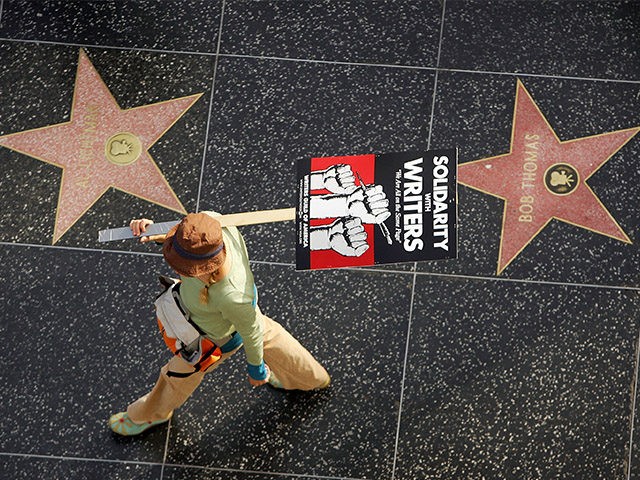The Alliance of Motion Picture and Television Producers (AMPTP) and the Writers Guild of America (WGA) reached a tentative three-year contract deal on Tuesday as Big Hollywood relationships ave become increasingly irrelevant.
The Writers’ Guild of America’s union negotiating committee claimed it had made “gains in minimums across the board – as well as contribution increases to our Health Plan that should ensure its solvency for years to come.” The union recommended that its 20,000 brothers and sisters of the Los Angeles-based Writers Guild of America West and 4,500-member of Writers Guild of America East vote for the settlement.
The WGA has been a dominant figure in Hollywood business and politics for 50 years. The powerful union that could shut down productions, and cost hundreds of motion picture and television studio moguls millions of dollars, went on strike in 1960, 1981, 1986 and 2007–2008.
But when the 12,000-member WGAstruck studios for 100 days beginning in 2007, the 397 production companies played hard ball and stretched the strike out for 100 days.
According to Deadline Hollywood, the AMPTP claimed that WGA members lost $287 million during the strike. Although the union disputes the size of the loss, and claims that 96.3 percent of its members gave the union a strike authorization in April, WGA West financial statements reveal that 65 percent of the $2.86 million in loans the union made to striking writers in 2007-2008 strike have still not been repaid.
The WGA reported on its website that “we made gains in minimums across the board – as well as contribution increases to our Health Plan that should ensure its solvency for years to come.” The union estimates that the settlement is worth $130 million more and provides enhanced “Options and Exclusivity” protections for its members, compared to the original AMPTP offer.
WGA added that it “also made unprecedented gains” in obtaining a minimum of 2.4 weeks of work for each short season television episode fee; a 15 percent increase in pay TV residuals; $15 million in increases in high-budget subscription Video on Demand residuals; pay TV comedy-variety residuals; and job protection on parental leave.
A WGA West official told Variety, “The deal that we made is the art of the possible. We did the best we could. It’s got some important new things in it, and an important old thing: the health plan has been taken care of.”
The giant media companies appeared to be in a very strong contract negotiating position versus the writers’ union. But with the Pew Research Center reporting that 75 percent of cable cord-cutting young people claiming they can watch what they want online, the media giants wanted to avoid a long strike that would make them more irrelevant, as creatively self-produced media content increasingly becomes available on YouTube and Instagram.

COMMENTS
Please let us know if you're having issues with commenting.